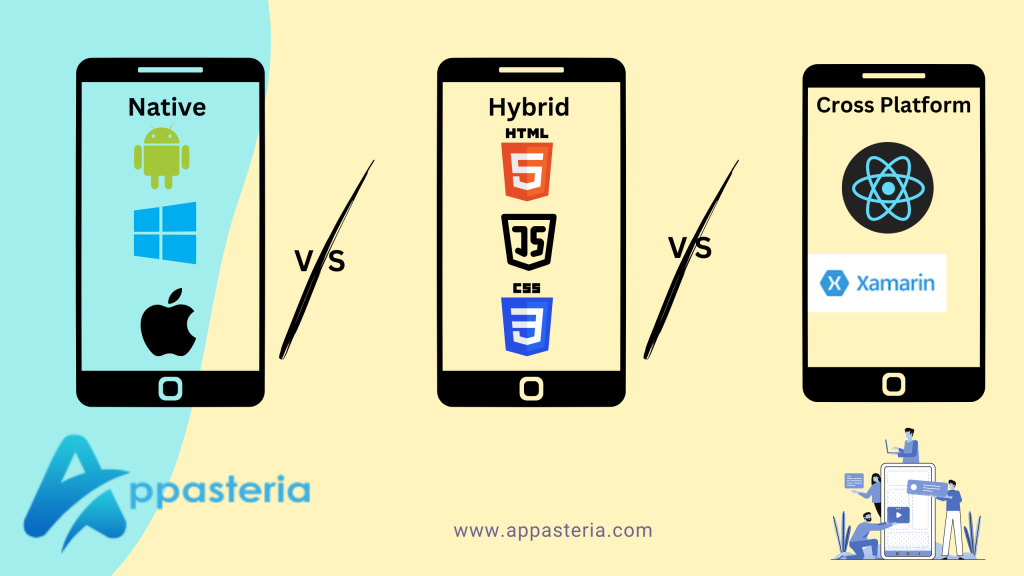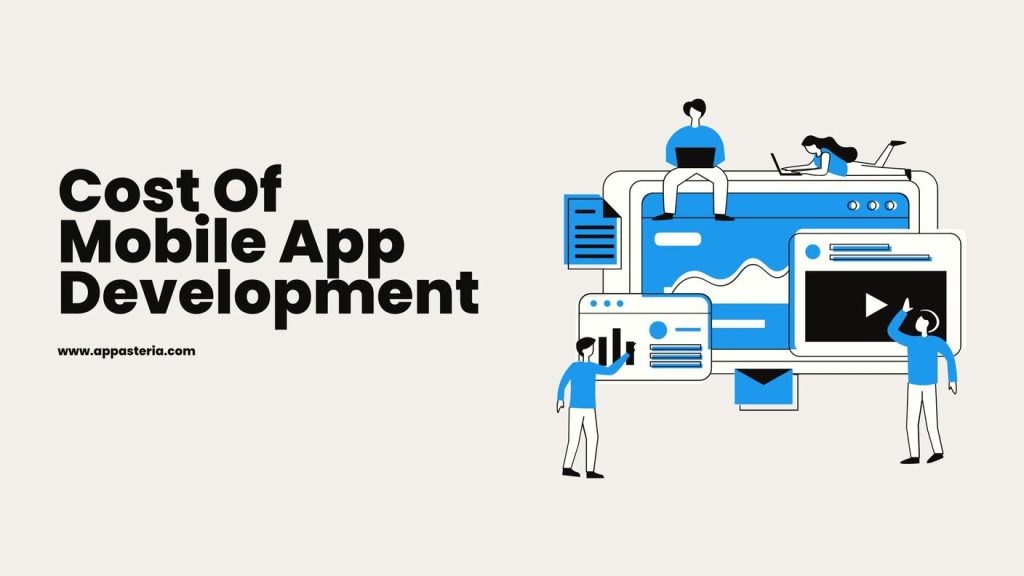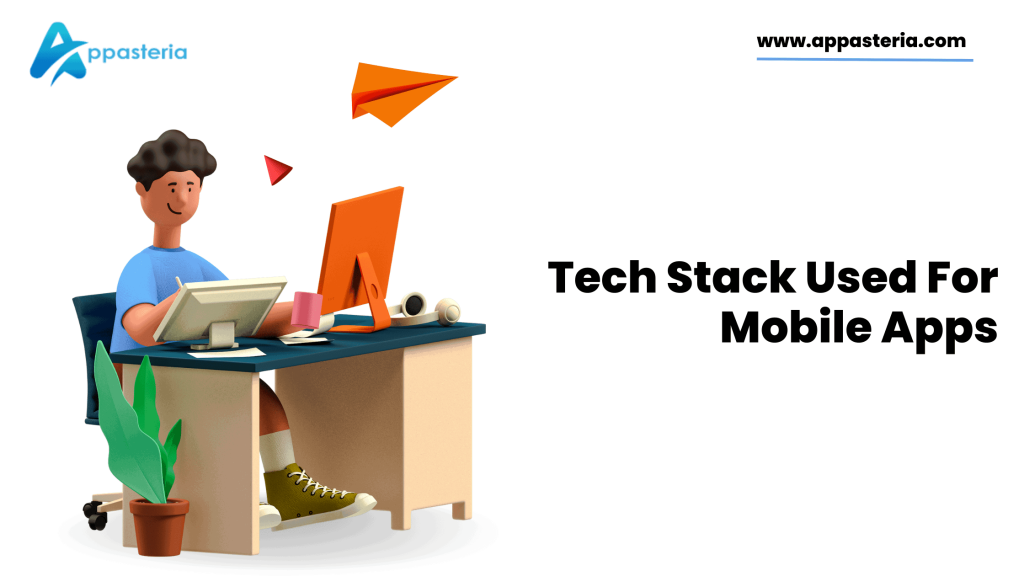When it comes to mobile application development, the decisions you make will determine the success of the apps. So, which app development strategy should you use, native vs hybrid vs cross platform? With the advancement of technology, our lives also depend on digital assets. It is difficult for companies to compete in the digital landscape because Play Store and App Store apps have limited exposure, skills, resources, and budget.
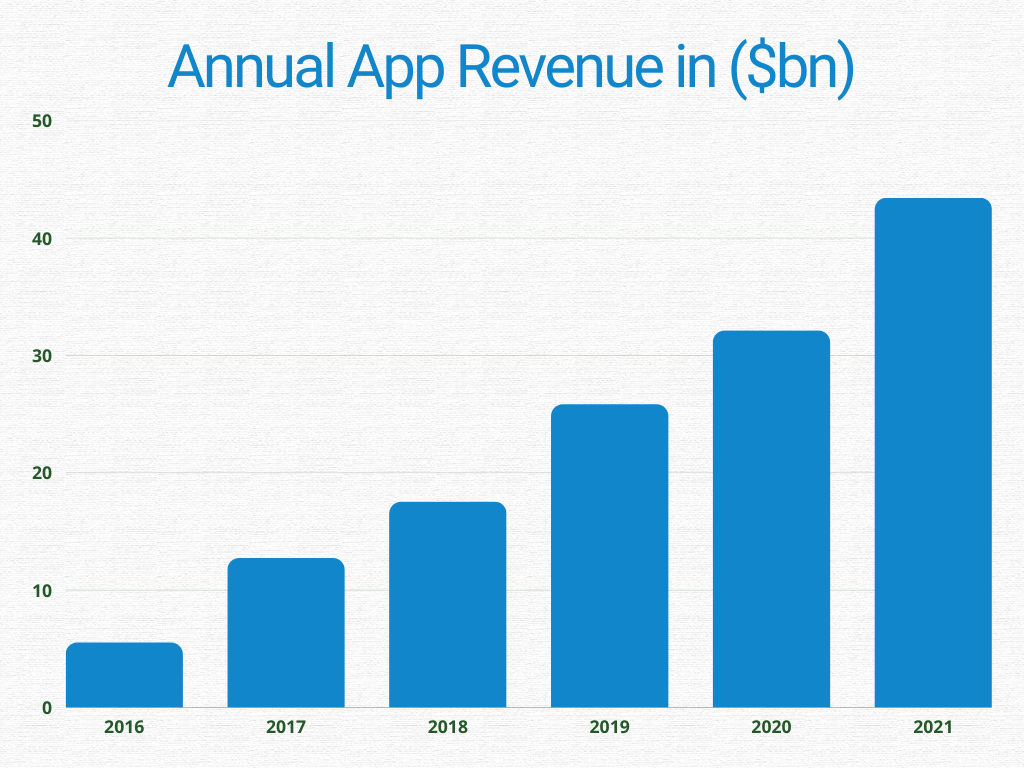 Source: Data.ai, Sensor Tower
Source: Data.ai, Sensor Tower
The businessperson is under pressure from the current competitive environment to emphasise quality, accuracy, and functionalities. Other factors that persuade potential clients to choose their services over competing ones. Businesses often need help with mobile app development, such as deciding on the best technology to use, choosing between iOS or Android, and finding the most suitable app development framework for attracting a more extensive customer base. We will discuss the three effective app development approaches Native, Hybrid, and Cross-platform.
A quick introduction to these three platforms
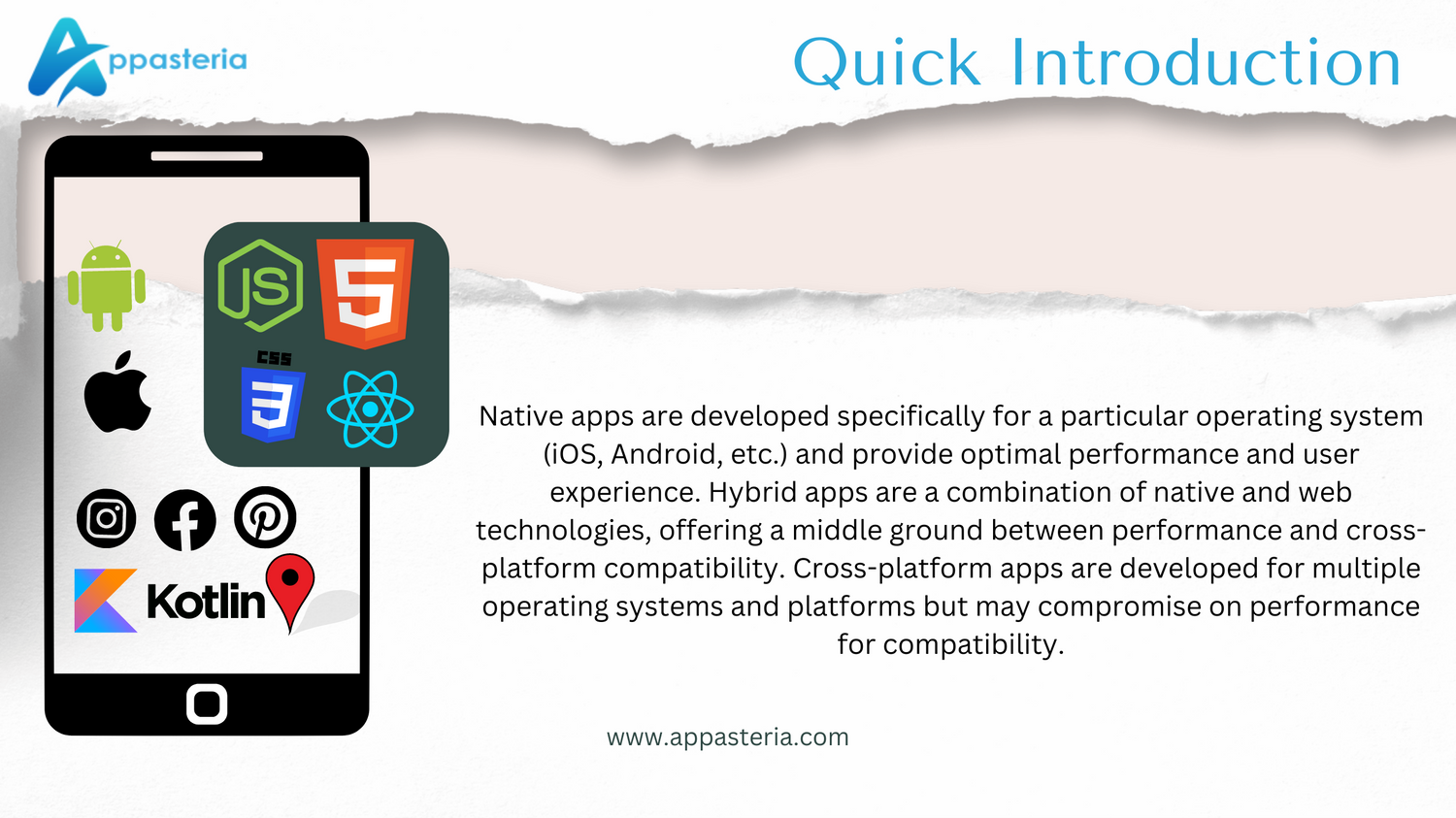
Native vs Hybrid vs Cross Platform are three approaches to building mobile applications.
Native apps
They developed specific native apps for a particular platform, such as iOS or Android, using their native programming languages and tools. They give you the best performance, convenience, and access to device features, but you need different teams to build for each platform.
Hybrid apps
Developers combine native and web technologies, develop them using HTML, CSS, and JavaScript, and then wrap them in a native app container to access device capabilities to create hybrid apps. They are straightforward to develop but may have a different level of performance and satisfaction than standard apps.
Cross-Platform
Developers use a single codebase to build cross-platform apps on multiple platforms. They offer the ability to target multiple platforms with a single development effort but may have limited access to device capabilities and may not perform as well as native apps. Each approach has its benefits and trade-offs; the choice of which one to use depends on the project’s specific requirements.
What does a native app mean?
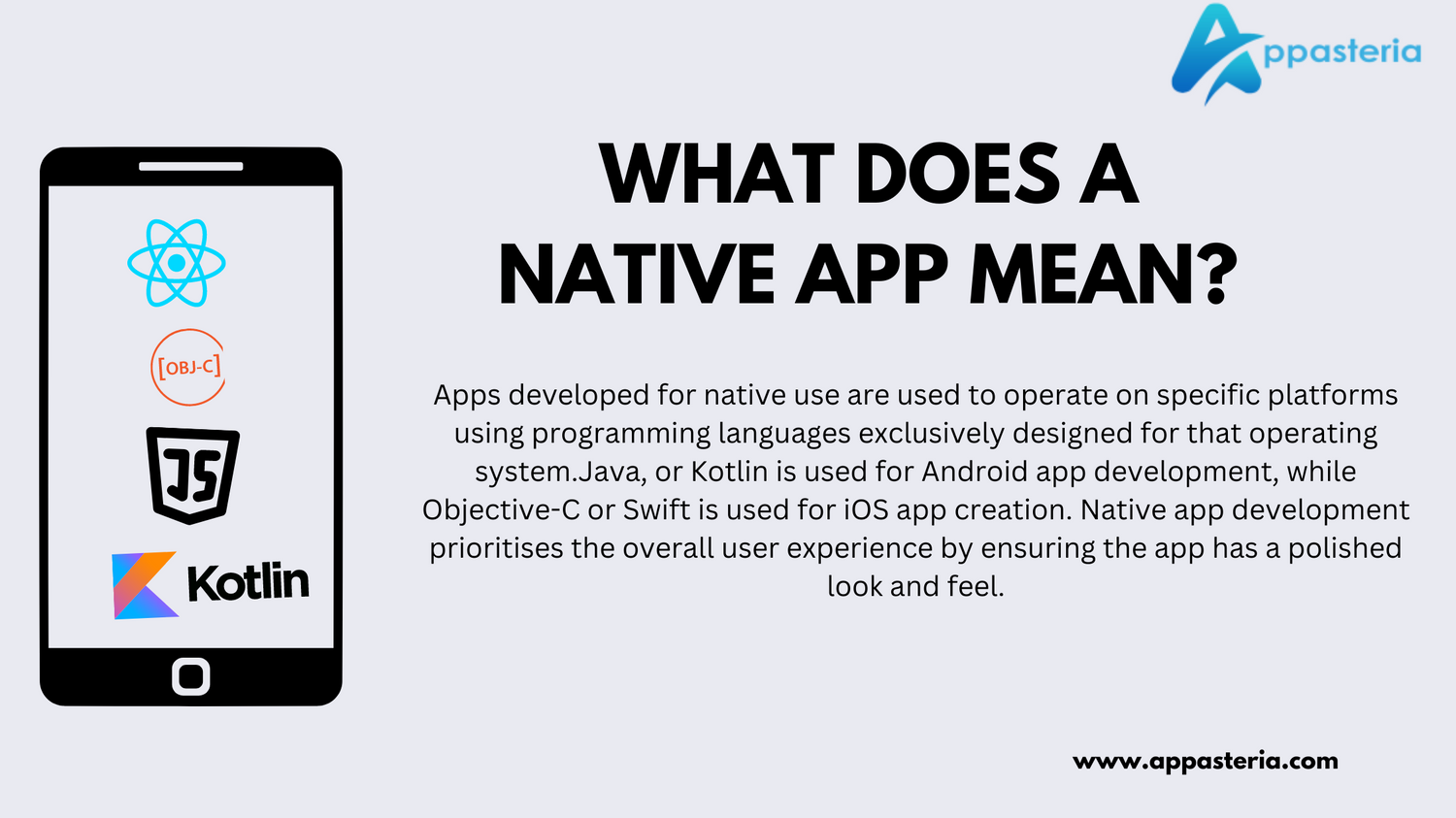
Apps developed for native use are specifically used to operate on specific platforms using programming languages exclusively designed for that particular operating system.
It is a development of creating the app and software of mobile app platforms such as Android and ios. Native app development involves using the programming language specific to a particular operating system to create apps modified for a particular platform, such as desktop computers, smart TVs, smartphones, or other digital devices.
Java or Kotlin is used for Android app development, while Objective-C or Swift is used for iOS app creation. Native app development prioritises the overall user experience by ensuring the app has a polished look and feel. Additionally, native development enables developers to take advantage of device hardware such as GPS, proximity sensors, cameras, and microphones to enhance app capabilities and add more features.
The best native app illustration:
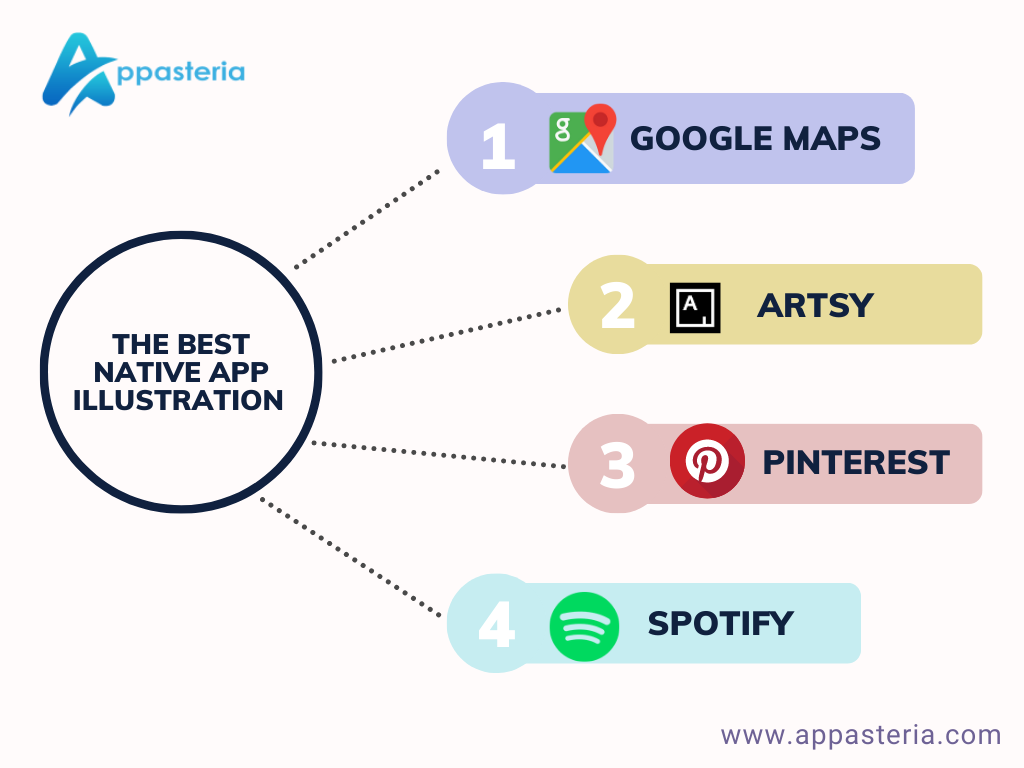
- Google Maps
- Artsy
- Spotify
Some benefits of native apps:
- Improved performance
- Access to device features
- Better user experience
- Offline functionality
- Security
- very high scope of scalability
- Reduced and optimized app size
Cons of developing native apps:
- Increased cost
- Longer development time
- Maintenance challenges
- Device fragmentation
- App store restrictions
Tools for Developing Native Mobile Apps:
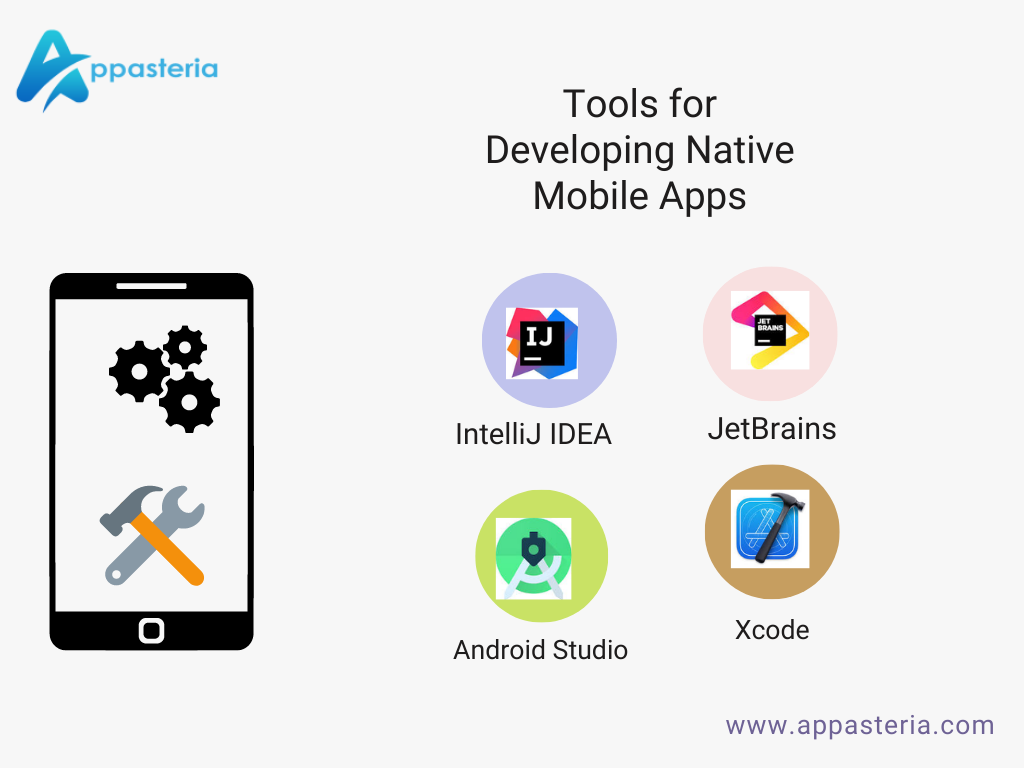
Android application development tools
Android Studio: Android Studio is the official Integrated Development Environment (IDE) for Android app development, built on JetBrains’ IntelliJ IDEA software. It provides a complete suite of tools for designing, coding, testing, and deploying Android apps.
IOS application development tools
Xcode: Xcode is the official IDE for iOS app development, providing a suite of tools for designing, coding, testing, and deploying iOS apps.
These are some of the popular tools available for native mobile app development. Choosing the right tool depends on the project’s specific requirements, the development team’s expertise, and the targeted platforms.
It will help if you consider developing a native app:
- Performance is a priority: Native apps have better performance and responsiveness than other app development methods, making them a good choice for resource-intensive apps requiring high interactivity and responsiveness.
- Access to device hardware: Native apps have direct access to device hardware, such as the camera, microphone, and GPS, allowing developers to create more feature-rich apps that use these capabilities.
- Platform-specific features: If you want to take advantage of platform-specific features like Apple’s Face ID or Google’s ARCore, native app development is the way to go.
- Unique user experience: If you want to deliver a unique, platform-specific user experience that is tailored to the look, feel, and conventions of the target platform, native app development is the way to go.
- High-quality graphics and animations: Native apps can provide high-quality graphics and animations, making them a good choice for games, multimedia apps, and other apps that require a visually rich user interface.
- App store visibility: they listed Native apps in app stores, providing visibility and distribution opportunities for your app. Additionally, app stores can help you monetise your app by offering in-app purchases, subscriptions, and other monetisation options.
What is hybrid application development?
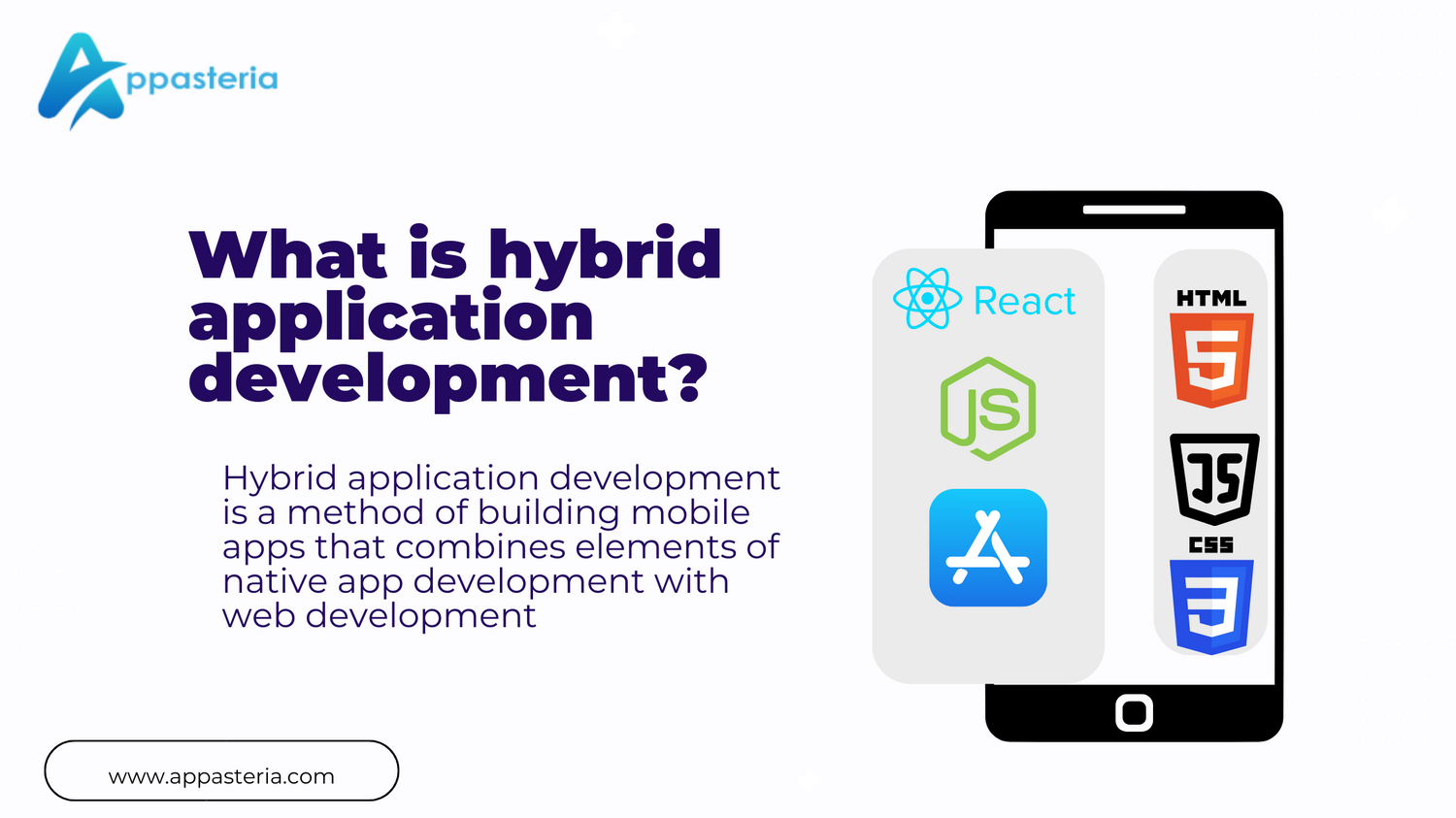
Hybrid application development is a method of building mobile apps that combines elements of native app development with web development. In hybrid app development, developers create a single codebase using web technologies, such as HTML, CSS, and JavaScript and then wrap this code inside a native container, such as Apache Cordova or Ionic.
The resulting hybrid app is essentially a web app running inside a native app container, which provides access to native device features, such as the camera, accelerometer, and contacts, through APIs. This allows developers to create apps that look and feel like native apps, but they may use them for multiple platforms, such as iOS and Android, with a single codebase.
Examples of hybrid mobile apps include:
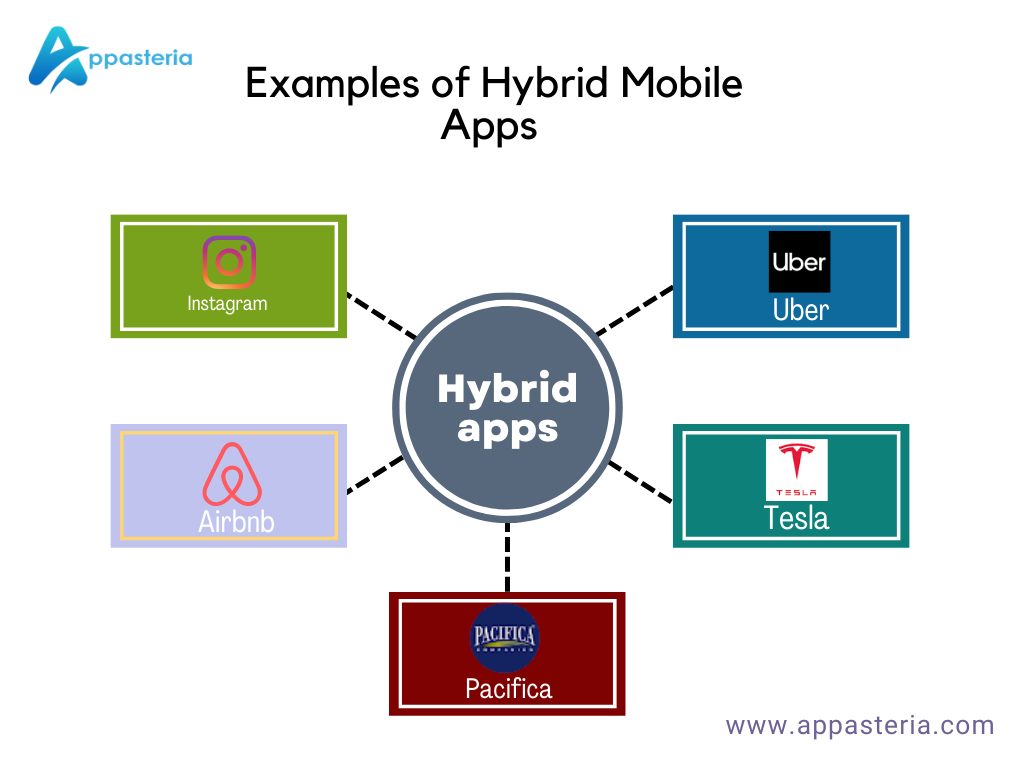
- Airbnb
- Uber
- Tesla
- Pacifica
These are just a few examples of the many successful hybrid mobile apps developed in recent years, demonstrating the power and versatility of hybrid app development.
Hybrid app development has several advantages, including:
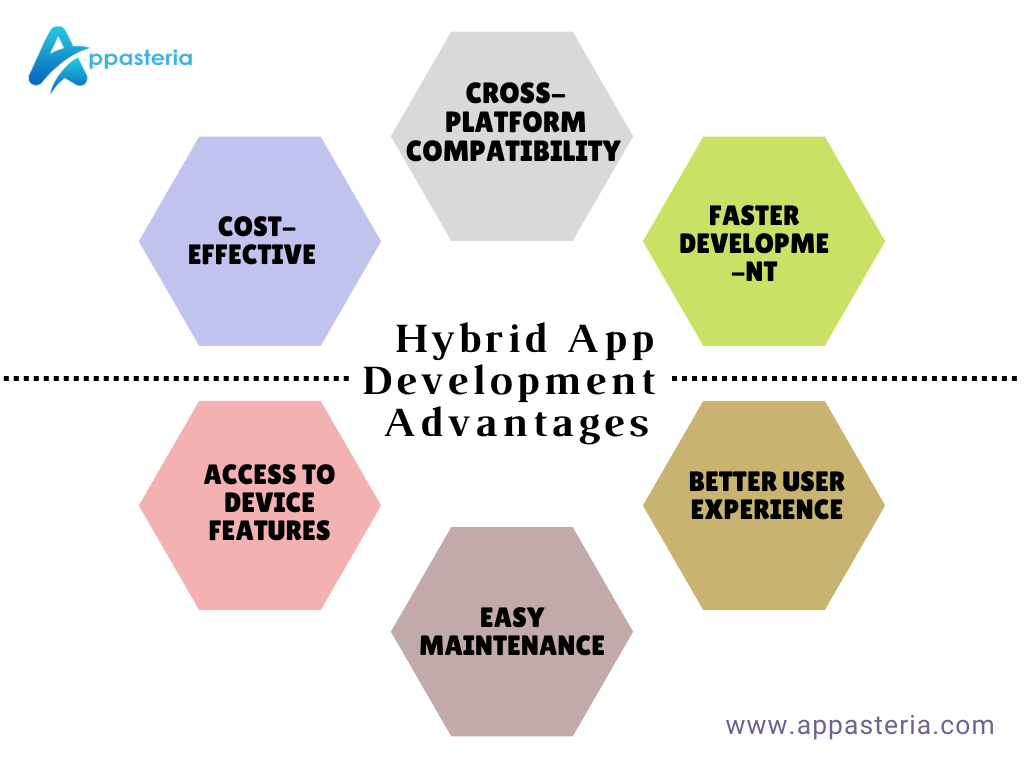
- Cost-effective
- Cross-platform compatibility
- Faster development
- Access to device features
- Easy maintenance
- Better user experience
Cons of Developing Hybrid Apps:
Hybrid app development also has several cons, including
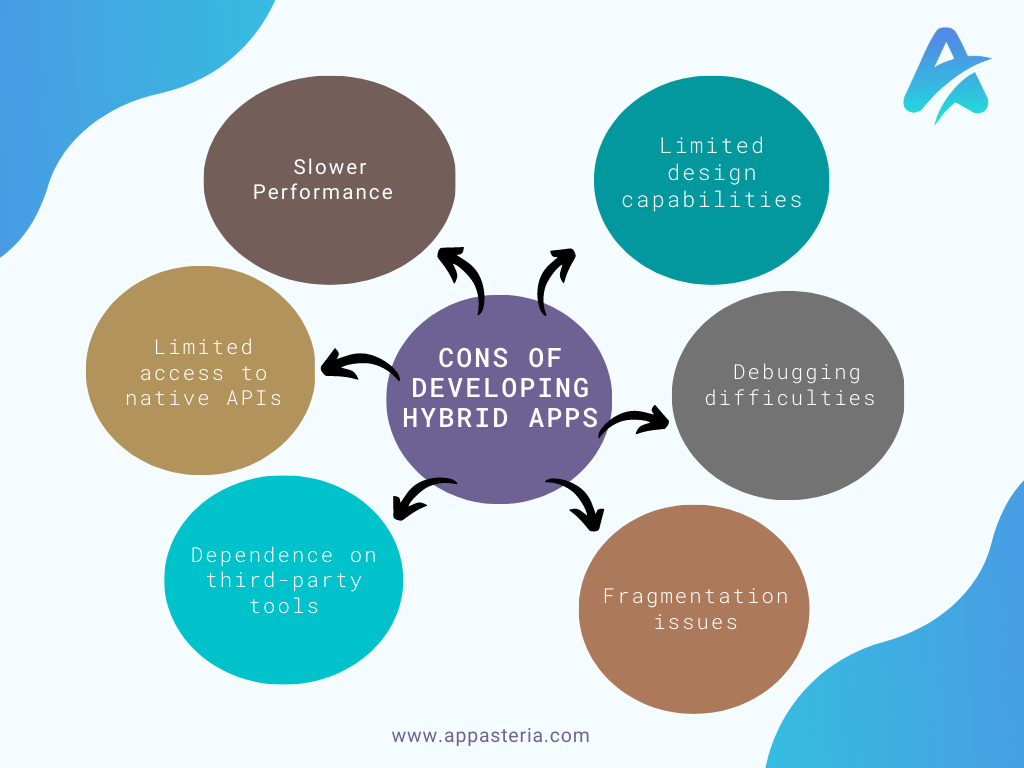
- Slower Performance
- Limited access to native APIs
- Dependence on third-party tools
- Fragmentation issues
- Debugging difficulties
- Limited design capabilities
It would help if you considered developing a hybrid app:
- You want to reach multiple platforms with a single codebase: If you launch your app on various platforms, such as iOS, Android, and the web, a hybrid app can be a cost-effective solution, as you only need to write the code once.
- You want to reduce development time: Hybrid app development is usually faster than native app development, requiring a single codebase for multiple platforms.
- You have limited resources: Hybrid app development requires fewer resources than native app development, as you only need to develop and maintain a single codebase.
- You want to access device features: Hybrid apps have access to a wide range of device features, such as a camera, GPS, and accelerometer, making it easier to build rich, interactive experiences.
- You need to provide a web-based experience: Hybrid apps can be accessed through a web browser, making it easier to reach a wider audience and providing a seamless user experience.
- You want to target multiple form factors: Hybrid apps can be adapted to different form factors, such as smartphones, tablets, and laptops, allowing you to reach a wider audience.
What does “cross-platform app” mean?
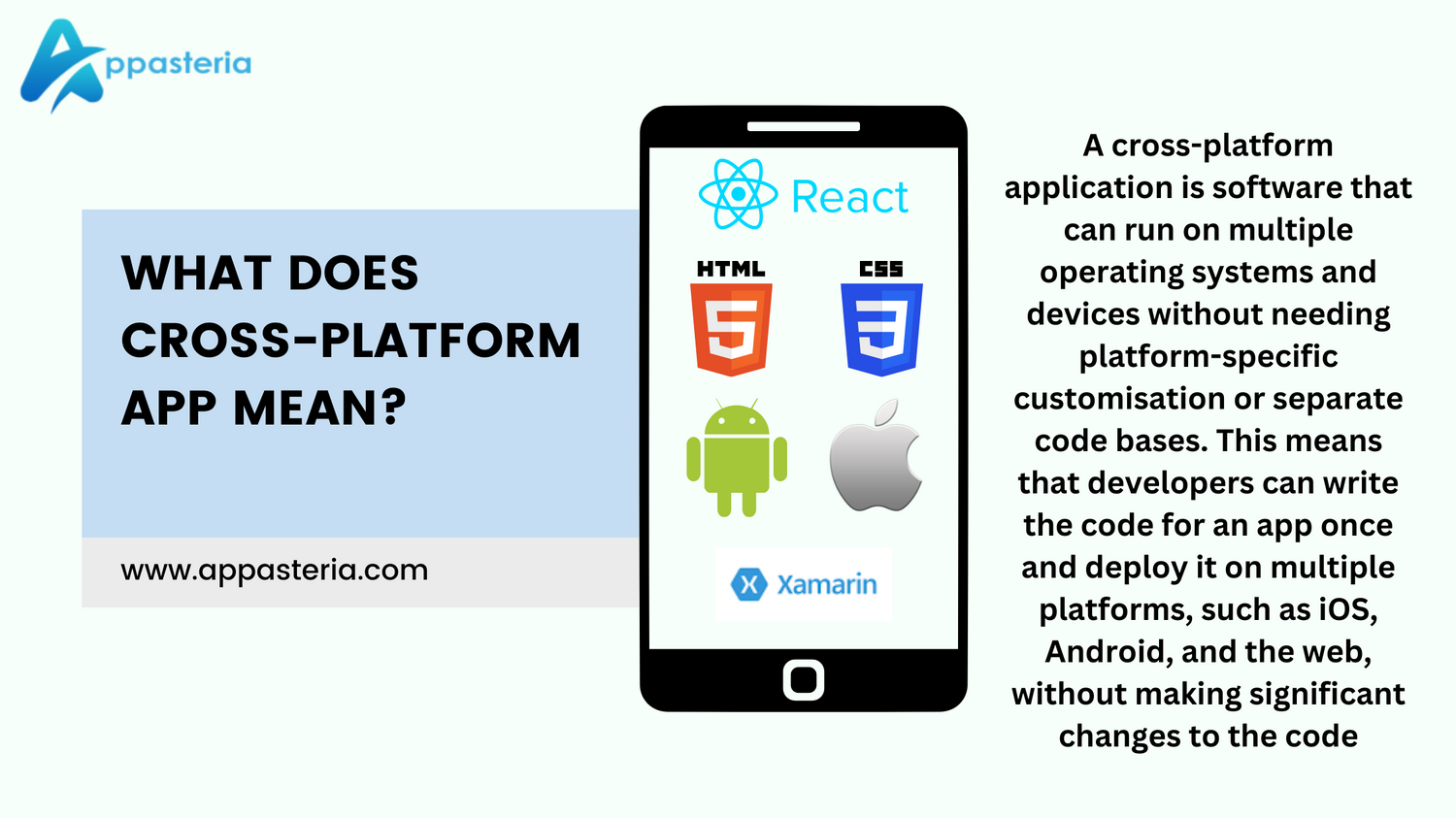
A cross-platform application is software that can run on multiple operating systems and devices without needing platform-specific customisation or separate code bases. This means that developers can write the code for an app once and deploy it on multiple platforms, such as iOS, Android, and the web, without making significant changes to the code. Cross-platform apps can be developed using technologies such as HTML, CSS, and JavaScript for web-based apps or cross-platform development frameworks such as React Native or Xamarin for native-style apps. The goal of cross-platform app development is to reduce development time, cost, and complexity while making it easier to reach a wider audience across multiple platforms.
Here are some examples of popular cross-platform apps:
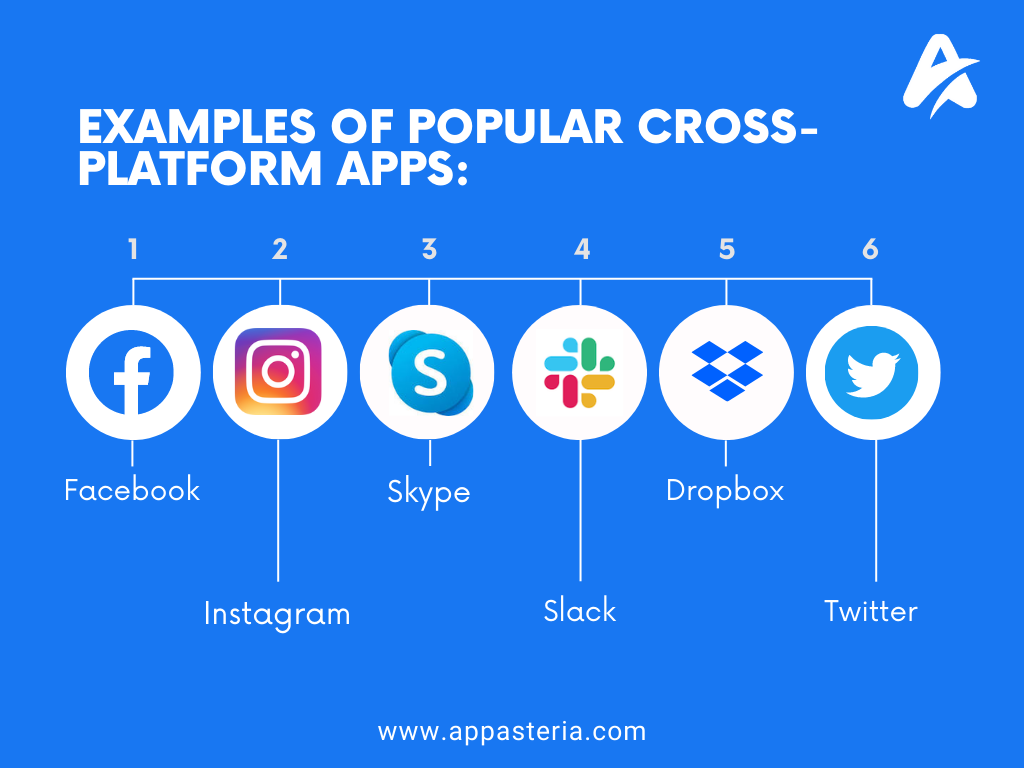
- Skype
- Slack
- Dropbox
These are just a few examples of popular cross-platform apps.
Cross-platform apps offer several benefits, including:
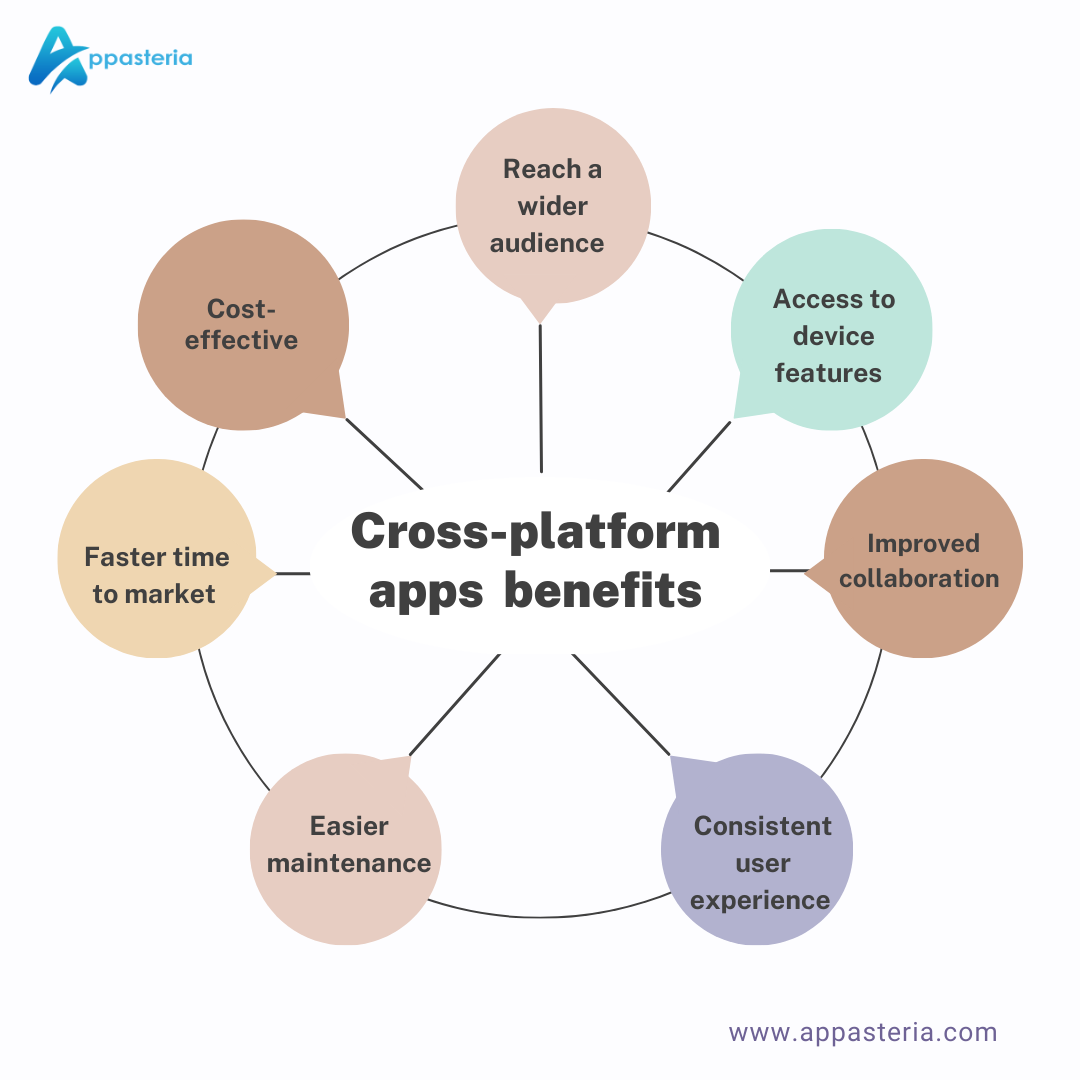
- Reach a wider audience
- Cost-effective
- Faster time to market
- Easier maintenance
- Consistent user experience
- Improved collaboration
- Access to device features
Cross-platform apps also have several cons, including:
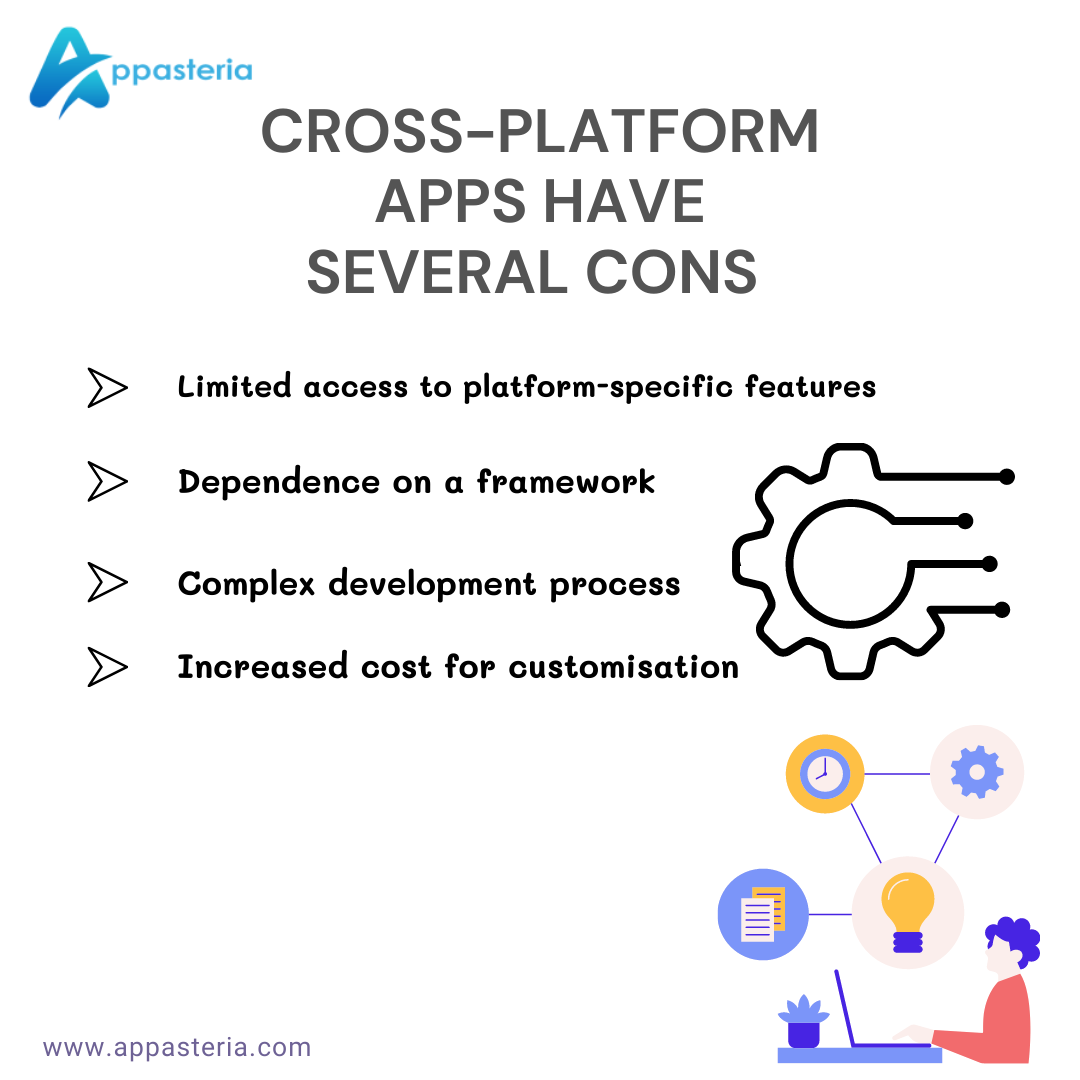
- Limited access to platform-specific features
- Dependence on a framework
- Complex development process
- Increased cost for customisation
It would be helpful if you consider creating a cross-platform app:
Consider building a cross-platform app when you want to reach a wider audience. Make your app available on multiple platforms (such as iOS, Android, and the web) with a single codebase, saving development time and resources. It can also be a good option if you want to quickly launch your app on multiple platforms and improve user accessibility and engagement.
Which one to choose, Native vs. Hybrid vs. Cross Platform:
Native vs. hybrid vs. cross-platform are three approaches to building mobile applications.
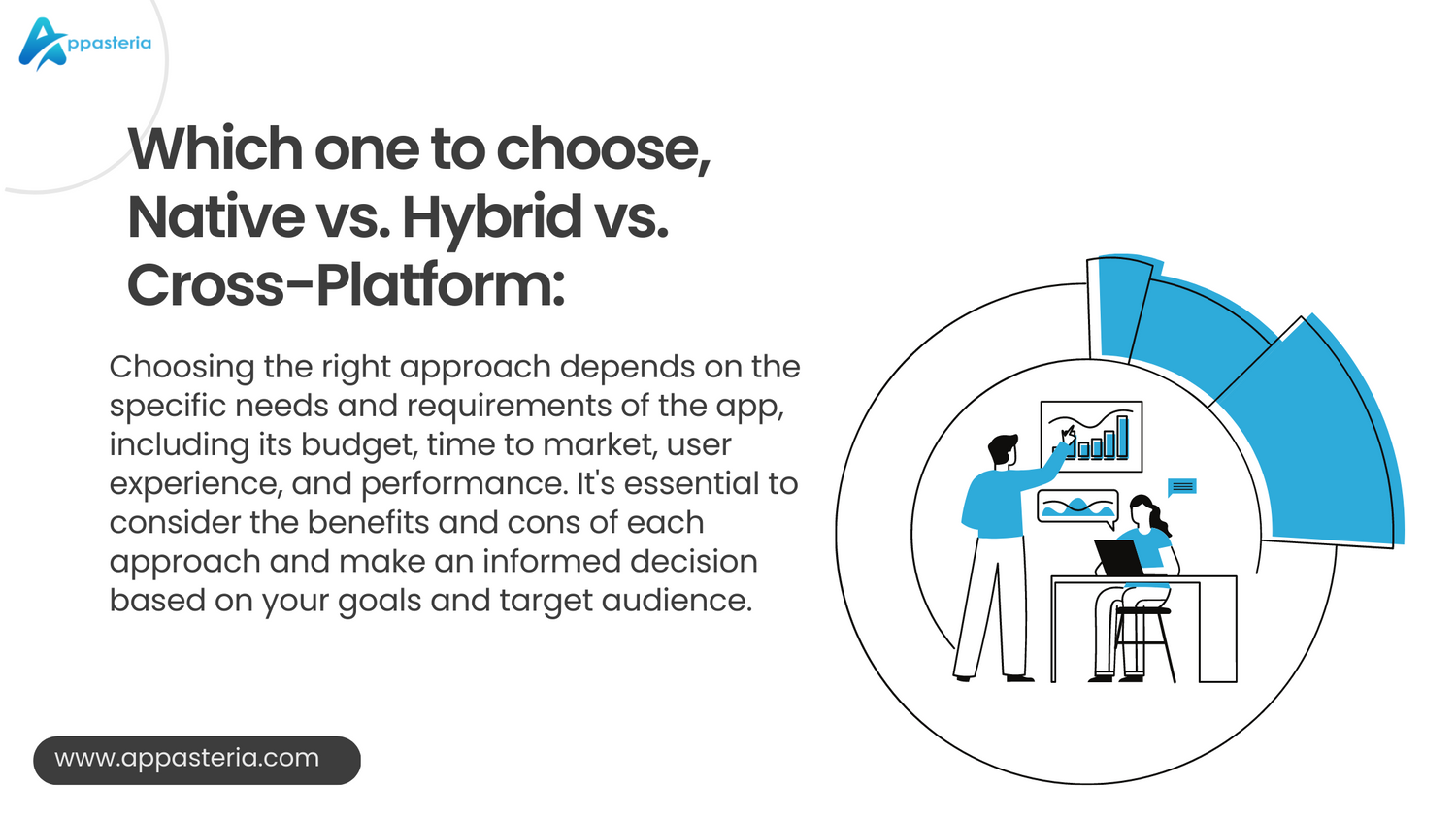
- Native apps are platform-specific applications built and executed on a specific operating system, such as iOS or Android, using the platform’s native language and development tools. They provide the best performance and user experience but require separate development for each platform.
- Hybrid apps offer a compromise between performance and development efficiency. Hybrid apps combine native and web technologies, running inside a native container on a mobile device. They are developed using a single codebase but can access native device features.
- Cross-platform apps are designed to run on multiple platforms using a single codebase. They can be built using native technologies, hybrid approaches, or cross-platform development frameworks. Cross-platform apps offer the advantage of lower development costs and time but may not provide the same level of performance as native apps.
Choosing the right approach depends on the specific needs and requirements of the app, including its budget, time to market, user experience, and performance. It’s essential to consider the benefits and cons of each approach and make an informed decision based on your goals and target audience.
Contact our growth experts here if you are still deciding which type of mobile app to choose for your project. Our mobile developers will work with you to identify the most suitable platform to meet today’s digital app development needs.
FAQs:
What is the difference between Native, Hybrid and Cross Platform app development?
- Native app development involves building separate apps for each platform using the specific programming language and tools for each platform (e.g. Java for Android and Swift/Objective-C for iOS).
- Hybrid app development involves building a single app using web technologies (HTML, CSS, JavaScript) and wrapping it in a native container to access native features.
- Cross Platform app development involves building a single app using a common language or toolkit that can be compiled to run on multiple platforms.
What are the advantages and cons of each approach?
- Native app development offers the best performance and user experience but can be more time-consuming and expensive due to platform-specific development.
- Hybrid app development offers a quicker development process and lower cost but can have performance issues and a less seamless user experience than native apps.
- Cross Platform app development allows for code reusability and faster development but can also result in performance issues and a less seamless user experience than native apps.
Which approach is better for performance?
Native app development typically offers the best performance.
Which approach is more cost-effective?
Hybrid and Cross Platform app development can be more cost-effective than native app development, but the cost ultimately depends on the specific requirements and complexity of the app.
Which approach is better for user experience?
Native app development typically offers the best user experience.

